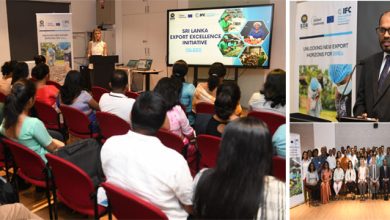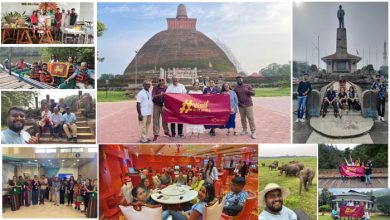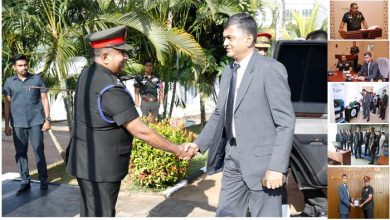Sustainable Buddhist Tourism Development in Sri Lanka


By
Prof. DAC Suranga Silva
Professor in Tourism Economics
Coordinator: Sustainable Tourism Unit (UOC-STU), University of Colombo
Emails: drsuranga@econ.cmb.ac.lk; drsuranga3@gmail.com
Religious Tourism: “A Deep Connection of Human Sprits”
Religious tourism is one of the oldest forms of travelling in the world. The United Nations World Tourism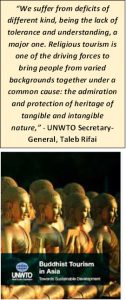 Organization (UNWTO) estimates that religious tourism creates nearly 300 million tourists annually with a significant contribution on local economies.
Organization (UNWTO) estimates that religious tourism creates nearly 300 million tourists annually with a significant contribution on local economies.
Religious tourism is considered as a catalyst for cultural understanding and cross-national partnership development. Today most of the tourists seek high-quality tourism experiences connecting with not only tangible cultural & religious heritage attractions and but also from the inspired intangible cultural and religious practices (https://www.unwto.org/archive/europe/press-release/2014-12-10).
Contribution of Religious Tourism: “A Growing Segment Blessing for Local Economic Prosperity”
The Asia-Pacific region is a global center for religious tourism, attracting the most pilgrims and travelers for religious events (https://www.e-unwto.org/).
- Annually, about 600 million spiritual journeys occur, with over half in Asia and 40% in Europe.
- In 2023, the faith-based tourism market is valued at over $15 – 18 billion USD.
- The projected annual average growth rate (CAGR) of world’s religious tourism is nearly 10.5% from 2023 to 2033.
- Each year, 300-330 million tourists visit major religious sites worldwide.
- The global Buddhist population is about 507 million and 97% of Buddhists live in 16 countries in Asia which represents more than 24% of the global tourist market.
- Buddhist tourism is a significant segment of global religious tourism, providing spiritual enrichment and a deeper understanding of Buddhist culture and heritage.
- Buddhist tourism is mainly based the countries like India, Thailand, Japan, China, Nepal, and Sri Lanka.
- In India alone, Buddhist circuits attract millions of tourists annually, contributing significantly to the local economies of several regions such as Bodh Gaya, Sarnath, Kushinagar, Bihar and Uttar Pradesh (UNWTO).
- Buddhist Tourism in Nepal contributes around 8% to its GDP in recent years.
Sri Lanka Buddhist Tourism: “A Story of Untapped Potential”
Buddhist Tourism comprises of tourism activities connecting with the religious, historical, cultural significance in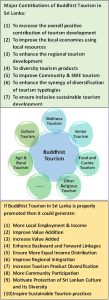 Buddhism with its touristic attractions in practices.
Buddhism with its touristic attractions in practices.
Sustainable Buddhist Tourism is to promote Buddhist Tourism with its continuous contribution to satisfy the growing travel needs of tourists while ensuring the ecologically balanced and socio-economically responsible tourism development.
Development of Sustainable Buddhist Tourism has a great potential to enhance the inclusive growth and resilience building of local economies. It can also provide a reliable mean from the industry for achieving the Sustainable Development Goals (SDGs) as well.
Development of Buddhist Tourism intrinsically requires a strong Inter-Connection and Intra-Connection, more specifically with certain types of tourism activities or with certain typologies of tourism development such as Culture Tourism, Wellness Tourism, Senior Tourism, Agri and Rural Tourism and with the other religious tourism activities as well.
Though Sri Lanka has not yet fully exploited, it has an immense potential to promote Buddhist tourism through the promotion of pilgrimages, heritage sight-seeing, Buddhist education, practices of spirituality & meditation, religious food & related festivals and cultural events.
Key Strategic Measures for Sustainable Buddhist Tourism Development in Sri Lanka: “Ensure the Best Fit of Synergy in Right Mix”
Sri Lanka must ensure several industry-policy level strategic transformations to promote Buddhist Tourism and to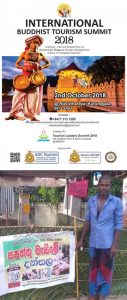 achieve its inclusive and sustainable development:
achieve its inclusive and sustainable development:
- Utilize the local resources including Local Knowledge & Wisdom, socio-cultural practices & livelihood activities of local communities and the other potential to meet the growing demand trends in religious tourism in the world.
- Strengthen the Backward and Forward Tourism Linkages along with Tourism Value Chain
- Improve the economic prosperity of local economies applying the effective measures to enhance the positive contribution of Direct, Indirect and Induced effects of tourism development
- Developthe necessary infrastructure facilities, policies & regulations, organizational frameworks and related actors/agents to promote Buddhist tourism
- Enhance the essential educational and training facilities to improve human resource development required for Buddhist tourism
- Apply modern technology with digital and infrastructure development to enhance the Operational Efficiency and Sustainability of Buddhist Tourism.
- Empower the stakeholders of the industry ensuring the practices of “Coopetition” in a competitive market through synergizing the Comparative Advantages using the Economies of Scopes to improve Buddhist Tourism.
- Strengthen Destination Management Organizations (DMOs) connecting with Destination Management Companies (DMCs) and the other relevant organizations and associations under the values of fair-trade practices
- Provide well-focused tourism marketing & promotion, acute branding and right segmentation & positioning to market Buddhist Tourism in Sri Lanka.
- Maintain the well-balanced approach between the practices of Buddhist Tourism and the principles and philosophies of Buddhism.


